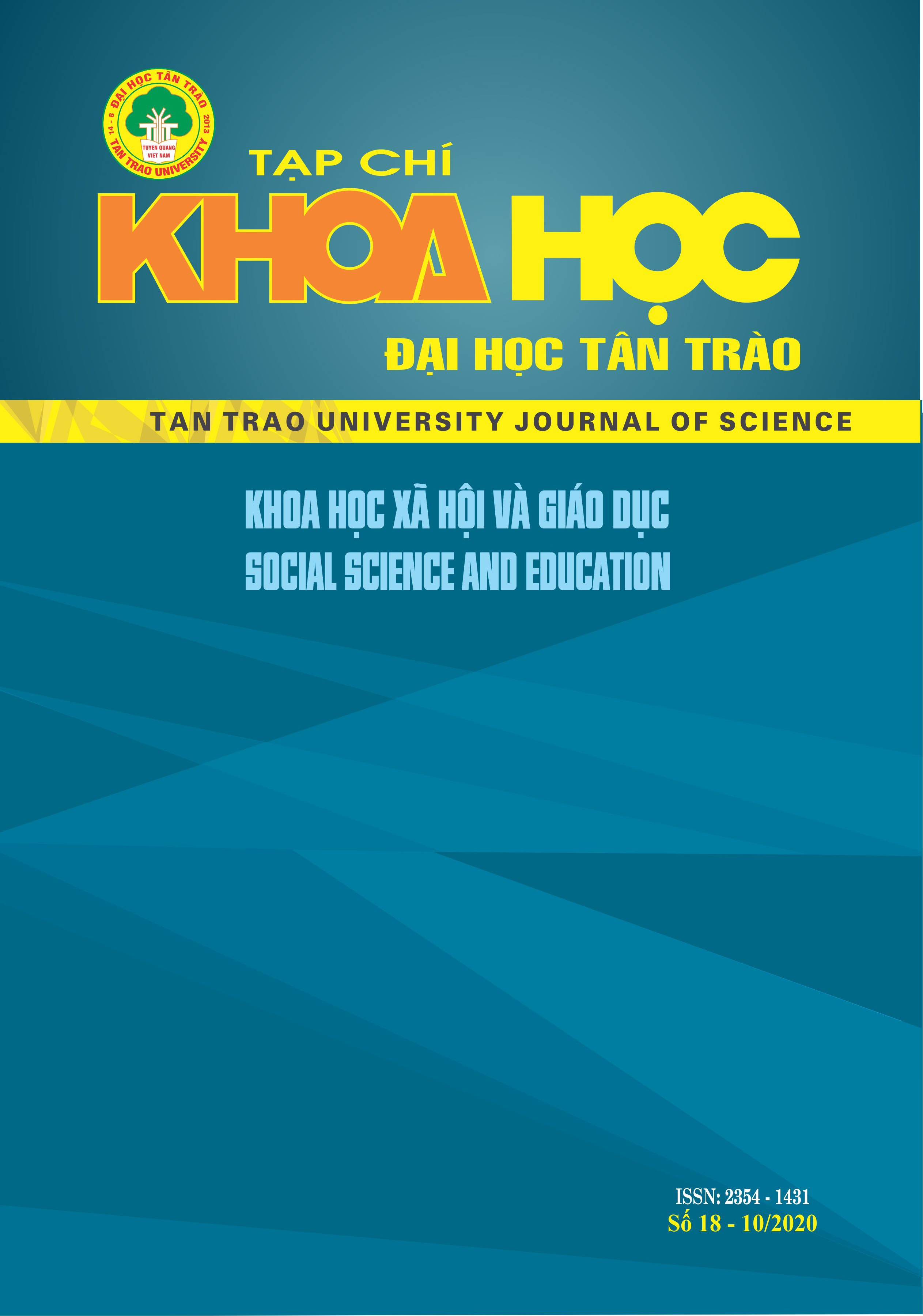CƠ SỞ NGÔN NGỮ HỌC ĐỐI VỚI VIỆC NHẬN THỨC CÁC KHÁI NIỆM CƠ BẢN CỦA PHONG CÁCH HỌC
DOI:
https://doi.org/10.51453/2354-1431/2020/417Từ khóa:
ngôn ngữ há»c, phong cách há»c, ý nghÄ©a tu từ, quy tắc tu từ, tÃnh võ Ä‘oán.Tóm tắt
Xuất phát từ nguyên lí về tính võ đoán của tín hiệu ngôn ngữ, đồng thời đi sâu khai thác một trong những hệ quả của tính võ đoàn - tồn tại các biến thể, bài báo đã phân tích và chứng minh sự hình thành của khái niệm ý nghĩa tu từ. Đồng thời nhận thức một cách sâu sắc nội dung khái niệm ý nghĩa tu từ và các đặc điểm của nó.
Tương tự, xuất phát từ tiền đề về lí thuyết giao tiếp, mà cụ thể là đặc điểm ba dạng lời nói cơ bản - lời nói hoàn toàn nói về đối tượng, lời nói không hoàn toàn nói về đối tượng và lời nói hoàn toàn không nói về đối tượng, bài báo đã đi sâu phân tích đặc điểm của mỗi dạng lời nói. Từ đó, bài báo trình bày nhận thức về nội dung khái niệm “quy tắc tu từ”.
Việc nhận thức đúng nội dung và đặc điểm của các khái niệm “ý nghĩa tu từ” và “quy tắc tu từ” sẽ là tiền đề, là cơ sở hình thành phương pháp phân tích phong cách học nói chung, phân tích ý nghĩa tu từ và quy tắc tu từ nói riêng, trong nghiên cứu và giảng dạy văn học ở nhà trường hiện nay.
Tải xuống
Tài liệu tham khảo
[1] Nguyen Phan Canh, Poetic Language, University and High School Publishing House, Hanoi, 1978.
[2] Huu Dat, Learning styles and functional styles in Vietnamese, Culture-Information Publishing House, Hanoi, 2000.
[3] Nguyen Thai Hoa, Vocabulary - Style Dictionary, Poetry Study, Educational Publishing House, Hanoi 2005.
[4] Dinh Trong Lac-Nguyen Thai Hoa, Vietnamese Language Learning Style, Educational Publishing House, Hanoi, 1995.
[5] Hoang Tat Thang, Modern Vietnamese Learning Style, Educational Publishing House, Hanoi, 2003.
[6] Cu Dinh Tu, Vietnamese language learning styles and rhetoric characteristics, Educational Publishing House, Hanoi, 1992.
Tải xuống
Đã Xuất bản
Cách trích dẫn
Số
Chuyên mục
Giấy phép

Tác phẩm này được cấp phép theo Giấy phép Quốc tế Creative Commons Attribution-ShareAlike 4.0 .
Bài báo được xuất bản ở Tạp chí Khoa học Đại học Tân Trào được cấp phép theo giấy phép Ghi công - Chia sẻ tương tự 4.0 Quốc tế (CC BY-SA). Theo đó, các tác giả khác có thể sao chép, chuyển đổi hay phân phối lại các bài báo này với mục đích hợp pháp trên mọi phương tiện, với điều kiện họ trích dẫn tác giả, Tạp chí Khoa học Đại học Tân Trào và đường link đến bản quyền; nêu rõ các thay đổi đã thực hiện và các nghiên cứu đăng lại được tiến hành theo cùng một bản quyền.
Bản quyền bài báo thuộc về các tác giả, không hạn chế số lượng. Tạp chí Khoa học Tân Trào được cấp giấy phép không độc quyền để xuất bản bài báo với tư cách nhà xuất bản nguồn, kèm theo quyền thương mại để in các bài báo cung cấp cho các thư viện và cá nhân.
Mặc dù các điều khoản của giấy phép CC BY-SA không dành cho các tác giả (với tư cách là người giữ bản quyền của bài báo, họ không bị hạn chế về quyền hạn), khi gửi bài tới Tạp chí Khoa học Đại học Tân Trào, tác giả cần đáp ứng quyền của độc giả, và cần cấp quyền cho bên thứ 3 sử dụng bài báo của họ trong phạm vi của giấy phép.






